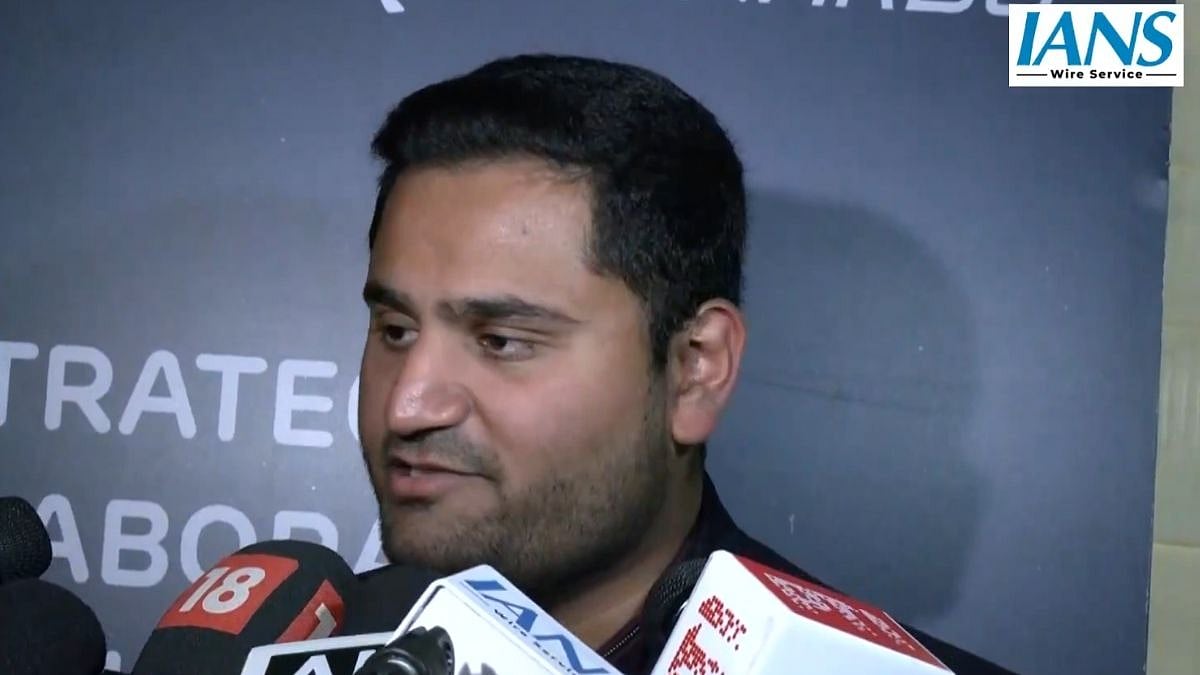The benchmark stockmarket indices, Sensex and Nifty, were trading around 2.5 per cent down in the afternoon session on Thursday tracking a heavy selloff in the global equities.
The 30 stock S&P BSE Sensex was trading 1,309.07 points or 2.41 percent down at 52,899.46 points at 12.48 pm, against its previous day's close at 54,208.53 points.
At 1.38 PM, the Sensex was down 2.51 percent or (-) 1,362.20 points at 52,846.33. The broader Nifty was down 2.53 percent or (-) 410.45 at 15,829.85.
Tracking overnight selloff in the Wall Street, the Indian equities markets' key indices started the trade on Thursday with massive losses. The Sensex opened sharply down at 53,070.30 points and tumbled to a low of 52,876.38. The Sensex had lost 109.94 points or 0.20 percent on Wednesday.
The broader Nifty 50 of the National Stock Exchange tumbled 397.45 points or 2.45 percent to 15,842.85 points against its previous day's close at 16,240.30 points. The Nifty had lost 19.00 points or 0.12 percent on Wednesday.
All the sectoral indices were trading in the red. IT stocks were the worst-hit. Wipro tumbled 5.66 per cent to Rs 454. Infosys dipped 5.54 per cent to Rs 1,426.10. Tech Mahindra slumped 5.52 percent to Rs 1,107.75. HCL Technologies was down 5.03 percent to Rs 1,019.95. TCS tumbled 4.61 percent to Rs 3,290.
The index heavyweight Reliance Industries Limited was trading 1.98 percent down at Rs 2,488.65. Only two of the 30 scrips that are part of the Sensex were trading in the positive.
ITC surged 3.10 per cent to Rs 274.75 on better than expected Q4 financial numbers. Dr Reddy's Laboratories was trading 0.58 per cent higher at Rs 3,930.75.
Naveen Kulkarni, Chief Investment Officer, Axis Securities, said, Growth momentum in the global economy is slowing down due to liquidity tightening by Central Banks. Russia – Ukraine conflict is also not showing any signs of easing with newer categories of weapons introduced in the conflict, which will keep Energy and Food prices high. Both these variables point to a stagflation kind of scenario globally, which can lead to discretionary spending going down. This is fueling greater volatility in global equity markets, including in India.
"We expect markets to remain volatile in the near term but expect better market conditions in the second half of the financial year once markets price in the impact of global slowdown and higher rates. So sectors which we like are good quality private sector banks, Oil Refiners and exploration companies, Agri linked companies including tractor manufacturers, Hospitality, Film Exhibitors and Hospitals," Kulkarni added.
Kotak Services said, IT stocks have corrected despite a relatively strong demand environment and robust revenue growth guidance. Correction has been driven by three factors—(1) increase in interest rates, (2) fears of recession in key client geographies and (3) risk to margins. What is priced into stock is risk to margins. What is not priced in is economic recession. "We bake in pre-COVID cost of equity in to our valuation models resulting in 2-14 percent cut in fair values. Stock prices are attractive even assuming a moderate demand slowdown. Infosys and HCLT are our top picks. Mphasis is good among midcaps, while LTI looks interesting after the recent 25 percent correction".
Parth Nyati, Founder, Tradingo, said, Global inflation has become the biggest spoilsport and has derailed the economic growth recovery globally. The post-pandemic inflation which was once believed to be transient has now become an entrenched one. Inflation rates are at a 40-year high in countries like the UK, and USA. The American retail majors Walmart and Target have disappointed on the Q1 earnings front, indicating that even large companies are unable to cope with the supply chain and inflationary woes. This has created a huge sell-off and meltdown in the majority of the stock markets globally. India's WPI inflation jumped to a 17-year high, this will force RBI to further hike interest rates. All these factors have collectively led to a 2% fall in NIFTY and Sensex. However, we believe that investors must be greedy when others are fearful and use this opportunity to lap up quality shares with good growth prospects and reasonable valuations.









